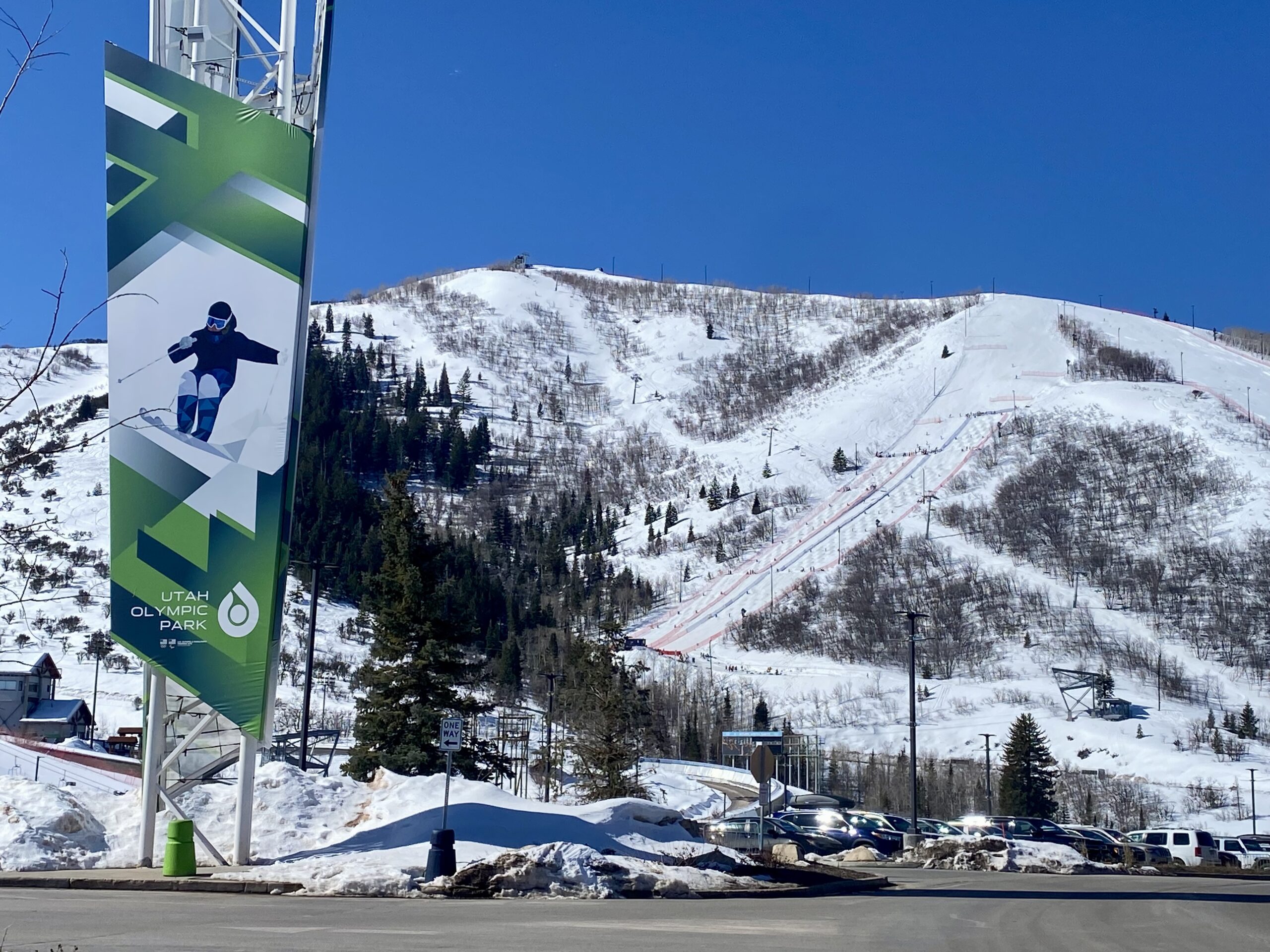Sports
Exclusive: Gold medalist Eric Bergoust on the UOP hosting Kazakhstan, Belarus
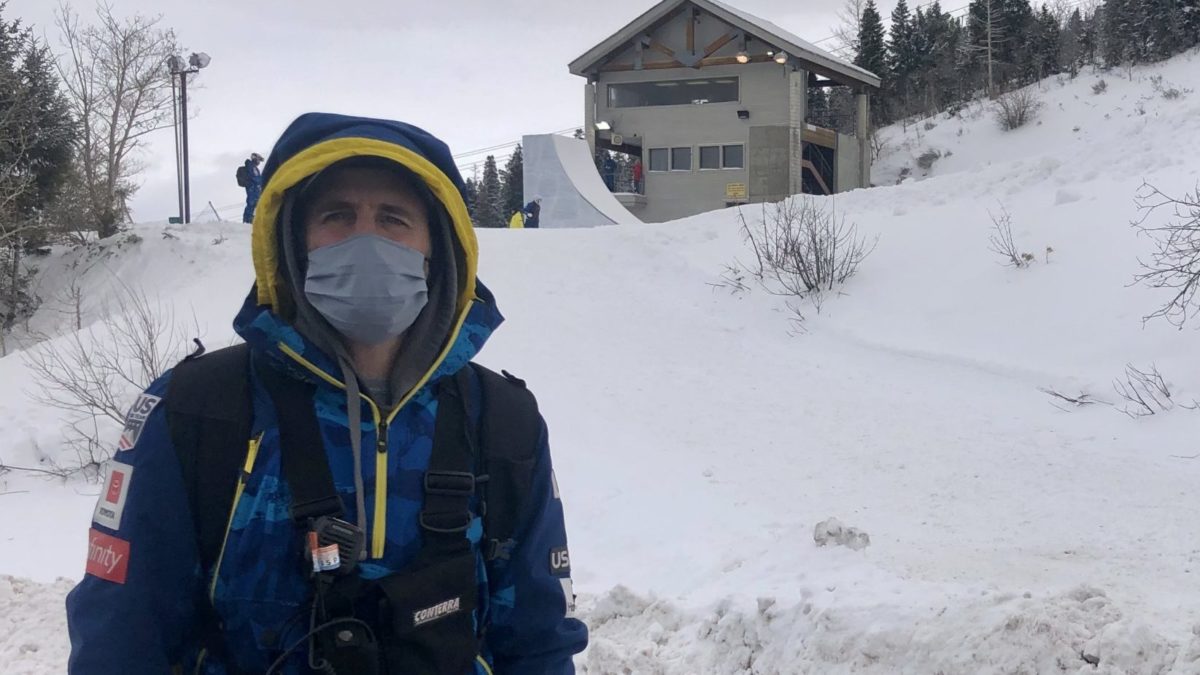
Gold medal freestyle aerial skier Eric Bergoust at the UOP. Photo: Michele Roepke
PARK CITY, Utah — Four-time Olympian and US Ski and Snowboard Hall-of-Famer Eric Bergoust, won a freestyle aerials gold medal in the Nagano 1998 Olympics. While not the head coach, he’s the current US Ski Team world cup coach. He gave an insightful impromptu interview on Wednesday as he was coaching his athletes at his home-away-from-Montana-home, the Utah Olympic Park (UOP), alongside the teams representing Kazakhstan and Belarus who’d brought their own coaches.
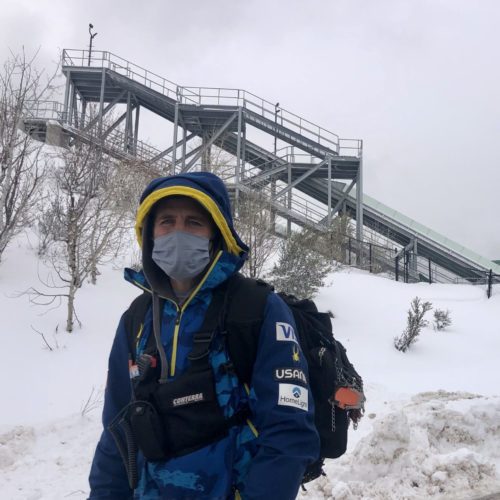
A natural-born ambassador of not only his sport but of the Olympic Movement promoting peace through sport, Bergoust is quick to correct others’ misusage of the geopolitical linguistical usage of the term Belarussians, gently explaining that the athletes prefer to be referred to as the ever-so-slightly nuanced pronunciation of “Belarus-ians.”
The formidable opponents of Kazakstan and Belarus are in Park City training for Deer Valley’s Freestyle International World Cup. Bergoust assures that USA’s Beijing Olympic team will be named after the event at Deer Valley.
In the Nagano 1998 Games, when American aerialist Nikki Stone became the first Team USA athlete to win a gold medal in the ski discipline, in which athletes launch themselves straight into the air off of a snow jump where they put together combinations of twists and flips before landing on a steep, short snow hill, it was beyond thrilling for Park City. When Bergoust punctuated podium perfection for America in Japan by repeating her gold medal, Park City lost its collective mind. The next host of the Winter Olympics had arrived.
Two-time Olympian Stone, a New Jersey transplant and Park City resident/royalty is a public speaker, author, mother, and University of Utah professor. This dynamic duo achieved more than individual golds, they instantaneously legitimized, solidified, galvanized and consolidated Park City’s Olympic spirit, as it was hyper-focussed on building the venues that would host the Games in four years.
Prior to Bergoust’s skis touching down in Nagano, it was a bit of a tough sell to Parkites to invest, financially and philosophically, in building an enormous summer swimming pool at the UOP for what was confusingly to many, a winter sport for winter athletes in a winter town. Aerial jumpers train in warmer months by flying over then falling into the water.
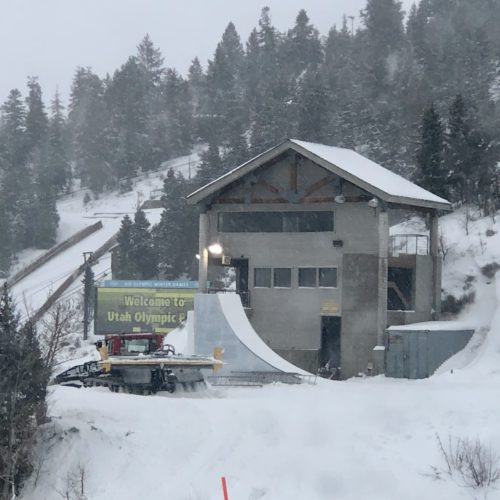
The Nagano 1998 Games took place back when the Olympics weren’t yet influenced by the 24/7 internet and only did television spectators have the opportunity to tune in to the events during American prime-time, much to the delight of advertisers. Berguost jumped in Japan local time in the middle of the night Utah time. Sans texts/email, when the phone rang in the middle of the night, people actually answered, and when news started trickling in from US Ski Team connections over there, the thrill of learning about Bergoust’s gold spread through Park City via word-of-mouth exponentially. That morning was like waking up in the make-believe, magical, mountain town of Whoville with Christmas spirit replaced by Olympic spirit, morning complete with the animated, radiating light and underlying rejoiceful musical score.
Even though he alone had done it, the villagers’ vibe of Park City felt as though they had done it. His performance had injected a swagger into the community that it didn’t even know it was lacking and Parkites put their proverbial shoulders back and strode confidently through the next four years united as one.
“Kazakhstan and Belarus are very lucky to be allowed to train here. China doesn’t do the same thing in hosting foreign teams, China does the opposite,” Bergoust told me.
“Our sport is particularly important to get time at that venue,” he continued.”Because in a sport like trampoline or diving from which some of these athletes derive, it’s indoors, it’s a controlled environment. The diving board is the same every time. Out here, the wind changes all the time. We have a dominant wind that athletes get used to. Also, you know when the sun shows up on the hill. I know, for example, that before noon there’ll be sun on the landing hill which makes it way easier to see. After noon, the sun is on the jump, but not on the landing hill. So when you’re skiing in, you’re kind of blinded by the light on the jump and then you look down into the dark abyss of the landing. And so, I know I have to tell my athletes they need to pay more attention to trying harder to see the ground better in the afternoon. Yeah. Also, I know the wind usually picks up around one o’clock and that’s usually a tailwind. That’s very, very important and valuable information and when you get used to those things that become routine, you’re prepared for it you’re not psyched out by it, but also you excel in those conditions over other teams that may not know that.”
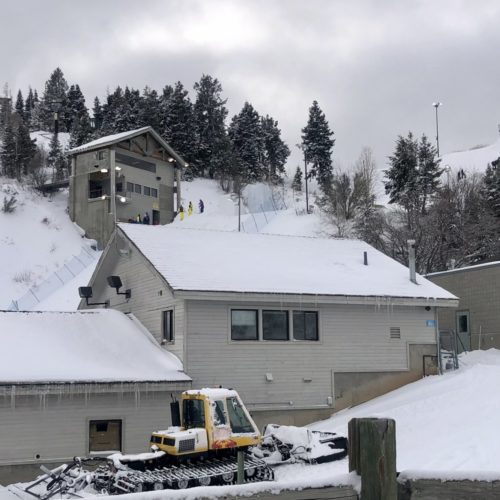
“That’s the kind of home-field advantage that China would get by hypothetically training for the last year at the Olympic venue,” Bergoust adds. “But I don’t know where they were training. The Chinese Team skipped the entire World Cup tour last year, we didn’t see any of them. They were training that entire time somewhere in China. And that can actually be more productive than competing.”
“Contractually, and thankfully to our generous sponsors, we compete every week to get sponsors to generate revenue to support the funding and just to keep them keep the economic mechanics moving. When we’re on tour competing in World Cups every weekend, there’s very limited training time because everybody wants to jump. There’s only like an hour and a half sometimes and you only get three jumps per day. But here at the UOP, we can do 15 jumps a day, every day for a week. And so there’s, you know, there are advantages to China staying home last winter.”
“It’s way more valuable from a personal athlete standpoint if I, like I when I used to compete, could have just stayed home for one winter or for three months of the winter and just trained and jumped and jumped and jumped. I would have done a lot better.” “Better than gold?” I asked. To which he smiled.

















